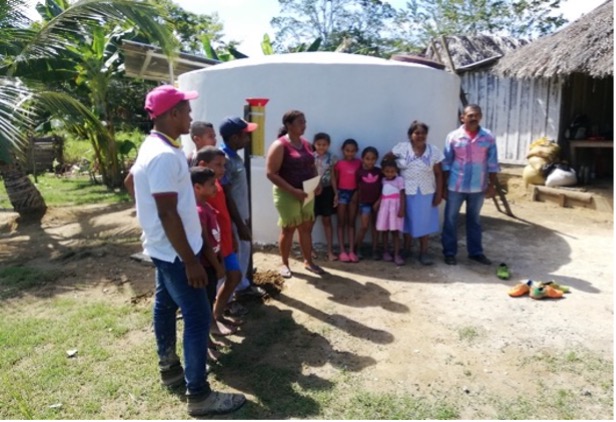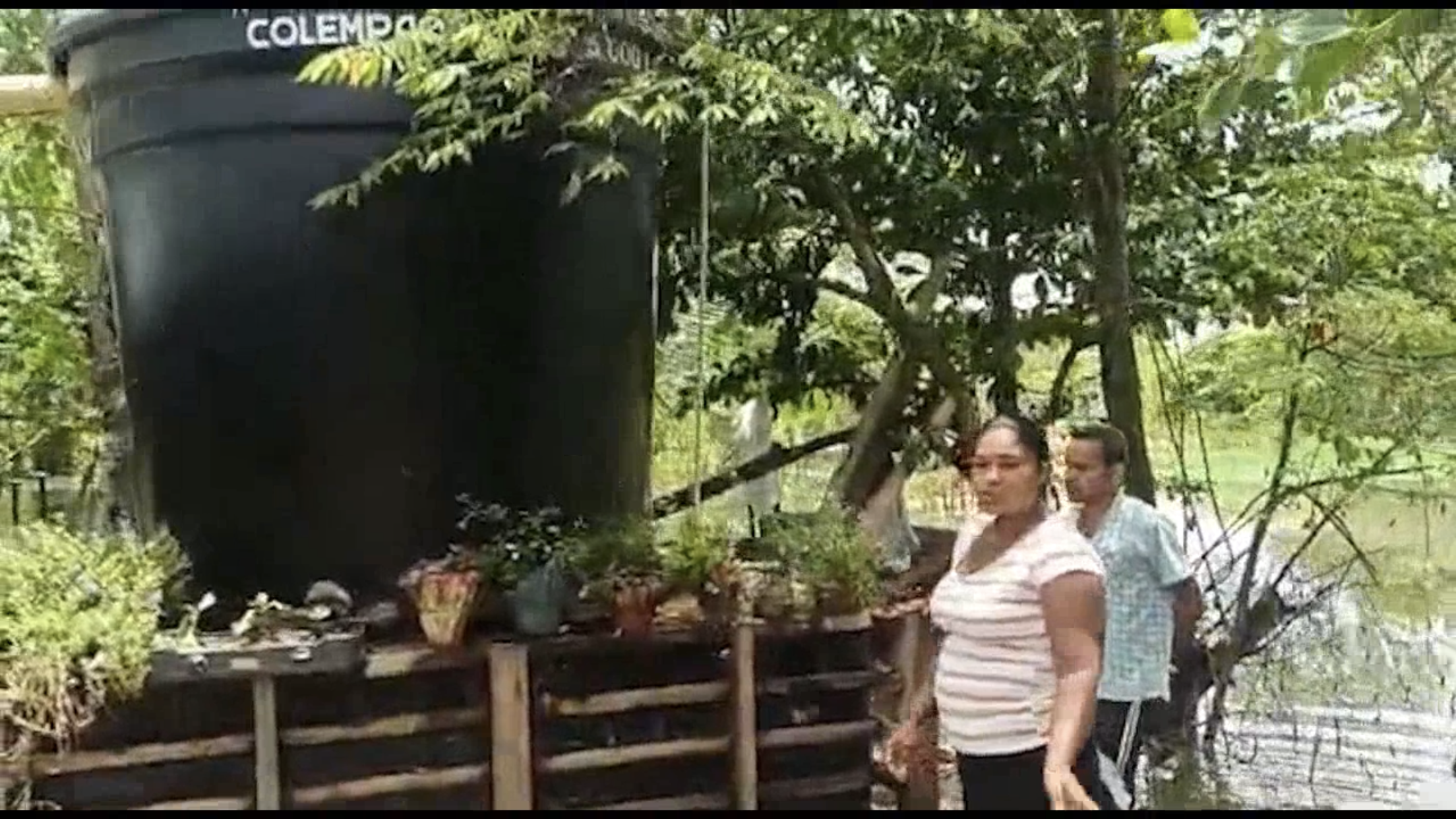


Access to reliable sources of safe drinking water is one of the most critical issues in La Mojana. Over 42% of the population has no access to drinking water. This situation will be exacerbated by increased temperatures and more frequent extreme events such as floods.
The project has invested in a diverse set of water solutions based on a local vulnerability analysis that was developed categorizing capacity for water access. The solutions include household and community rain water harvesting systems to capture water during rainy seasons and the enhancement of existing water infrastructure. This was done by repairing local micro-aqueducts and ensuring that these have the capacity to withstand use during summer months (use of solar panels to reduce stress on water pumps, enhanced pumping systems and tanks) and are able to protect water sources from contamination during floods.
Solutions are accompanied by training on how to operate and maintain these systems and water quality monitoring. Training is also provided to local water boards to enhance community capacity for water management. Capacity is provided through local responsible parties to ensure knowledge remains within the region and is relevant and that households are aware of the impact that climate change will have on local water sources.
The knowledge derived from a hydrological flow analysis in the region provided an initial understanding of the impact that climate change could have in terms of water sources. This allowed the project to identify water vulnerability and needs. A vulnerability analysis developed by the project helped assess the correct water solution at a household level based on their access to traditional water infrastructure. Partnerships with local municipalities has been a key factor as well as working with responsible parties that are based within the territory.
Results from the vulnerability analysis became a key input in allocating water solutions as it allowed the project to identify new investments and provide the additionality needed to allow for them to function well under extreme climate conditions. The vulnerability analysis also allowed the project to adjust to changing local conditions such as COVID related disruptions. Among the results has been the impact in generating local resilience to COVID by providing the water access necessary to implement hygiene protocols.
Working with the municipalities has allowed the project to coordinate at a local level and in some cases has resulted in increased allocation of co-financing. It has allowed the project to address its theory of change proactively by incorporating climate considerations into municipal investments. A key challenge has been managing COVID impacts that have affected the pricing of inputs for water infrastructure and their transport. The project has recurred to local responsible parties in the area to provide more capacity building support and general socialization of the solutions.